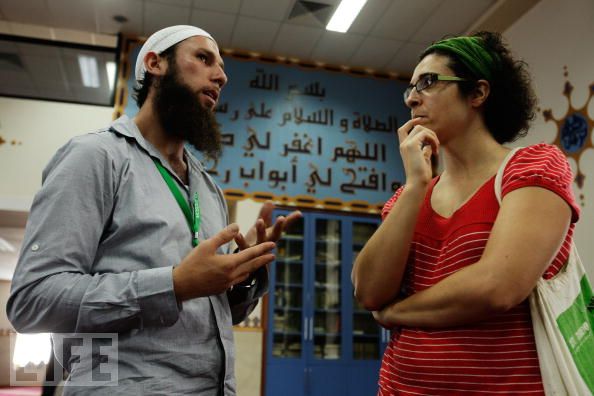Australia/Israel Review
The Last Word: Open to Scrutiny
Apr 18, 2011 | Jeremy Jones

Jeremy Jones
According to the organisers, and to the generous pre-publicity various media outlets provided, the recent Open Day at Sydney’s Lakemba Mosque and outreach by the Lebanese Muslim Association were intended to help break down stereotypes and contribute to multiculturalism.
While other mosques, together with temples, churches and synagogues, routinely welcome members of the public, a mosque associated with the infamous Sheikh Tajeddin el-Hilaly and an association which has been identified with the controversial and self-contradictory Keysar Trad had more reason than most to display openness and engagement.
Unfortunately for those within the mosque management and community leadership who genuinely wanted to promote goodwill, the event proved controversial due to the sale at the event of the notorious antisemitic fabrication, The Protocols of the Learned Elders of Zion.
It is difficult to know which scenario is worse – the books were deliberately brought to the mosque for sale because the content was believed to be credible or that the books’ presence was not seen to be unusual.
In recent visits to the two largest retail outlets for Islamic books in Sydney, I have seen The Protocols and/or one expanded version of it, Henry Ford’s The International Jew, for sale amidst works integral to understanding Islam.
Other books which have been sold and promoted from the same outlets have included Dajjal – The Jewish King, a children’s book, designed to incite suspicion of, and ill-will towards, Jews or people thought to be Jewish.
At the time of writing, any responses to the news reports and protests have not been made public. But it should be noted that mainstream Muslim groups, and very many Muslim individuals, have regularly expressed revulsion at the dissemination of anti-Jewish hate literature, as well as at the extremist bile emanating from some of the fringe Islamic personalities in Australia and elsewhere.
The publication of extracts from The Protocols in the Arabic-language Sydney newspaper El Telegraph was the subject of the first successful complaint I brought, on behalf of the members of the Executive Council of Australian Jewry, under Australia’s Federal Racial Hatred legislation.
While the outcome of that complaint was adverse for El Telegraph, it is important to observe that it had no negative impact on free speech.
To the contrary, it helped establish the parameters under which the media could best deal with contentious matters while steering clear of racist vitriol.
Successive complaints against Olga Scully in Tasmania, Frederick Toben and his Adelaide Institute, Carl Thompson and One Nation and Anthony Grigor-Scott and his Bible Believers’ Newsletters helped clarify the boundaries between hate propaganda, abuse, group defamation and harassment and fair reporting, legitimate research, widely-protected political speech and advocacy of religious beliefs.
What should not be in doubt is that the law itself is designed to aid individual Australians who have had their quality of life diminished by the actions (including writings) of others, when a feature of this behaviour is the “race, colour or national or ethnic origin” of the target.
After 15 years of operation, it has not had the effect of restricting and limiting free speech in Australia, but rather has helped identify and solidify the Australian values of fairness and generosity of spirit.
Tags: Antisemitism
RELATED ARTICLES

Antisemitism in Australia after the Bondi Massacre: Arsen Ostrovsky at the Sydney Institute





